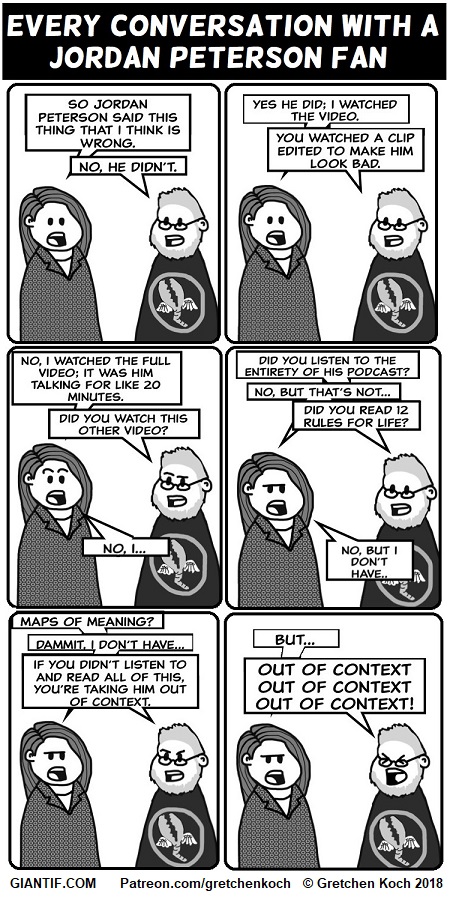We’ve all heard of the accusation of moving the goalposts. At bottom, this consists in illegitimately changing the standard of appraisal in order to match some arbitrary standard. While before you had to prove B, now you need only prove A, because, well, because. Closely related, so I think today, to this is the idea of enlarging the relevant dialectical context. Here’s a cartoon on point:

I have no comment on the actual discussion (and I don’t know anything about this Peterson fellow). This move nonetheless seems to be a pretty common one. It doesn’t so much as move the goalposts as it enlarges the field of play to such a point where you’ll never catch the other player (I don’t know what game this is in my analogy, but you get the idea).
So it’s a kind of iron man. Like all such ferrous persons, it works in two ways: the first way is to make the object impervious to criticism; the second way is to make the critic look dishonest. There’s one more thing: it’s a status-booster for the iron-manner: their being aware of the relevant information is a way of basking in its reflected glory.
Such moves (and I’ve observed them in other contexts, however) are strategically risky: the greater the burden of critique, the greater the burden of understanding. While your critic might not land the blow, the costs of understanding such a complex and unassailable view might be too high for potential converts.



